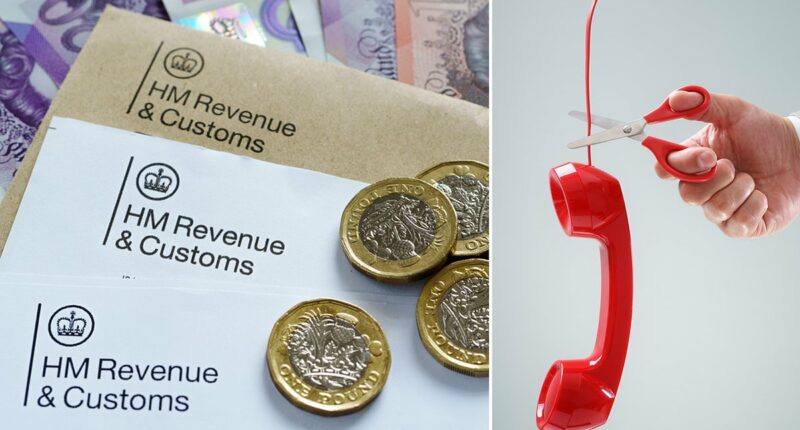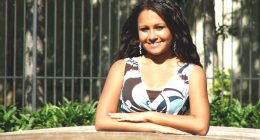Share this @internewscast.com
The tax office is grappling with a severe customer service crisis just as the deadline looms for millions of taxpayers to submit their returns, with only two-and-a-half weeks remaining.
Countless individuals caught in this service bottleneck face the threat of £100 penalties if they miss the January end-date for filing, despite circumstances beyond their control.
Disarray within His Majesty’s Revenue and Customs has extended the wait for essential login information to an astonishing six weeks, a significant increase from the standard 15 days required to access online tax accounts.
Without these credentials, taxpayers are unable to access their digital tax accounts.
A reader of Money Mail shared her frustration over an eight-month delay in receiving her Government Gateway ID, despite multiple attempts to contact HMRC.
Many are enduring hour-long waits on the phone, only to find that even when they get through, they often experience abrupt disconnections during their conversations.
So what exactly is going on at the tax office?

Cut off: People are waiting up to 58 minutes for HMRC to answer their calls. Last year, HMRC director Jonathan Athow admitted four million calls a year go unanswered
Phone line logjam
Many say they have gone to great lengths to pay their taxes but have been blocked by inefficiencies within the tax office.
> Read more: Our guide on how to fill in a self assessment tax return
Money Mail has discovered that people are waiting up to 58 minutes for their calls to be answered.
Last year, HMRC director Jonathan Athow admitted four million phone calls a year go unanswered.
But despite promises to reduce call wait times, taxpayers still face hour-long waits during peak hours.
Money Mail called HMRC’s helpline on Monday afternoon and waited 41 minutes before being connected – despite being assured by a recorded message ‘the average wait time on this line is 20 minutes’.
When a call handler called Christopher came on the line he admitted that it can take up to an hour for calls to be answered. ‘Best time to call is 8am,’ he said.
The official HMRC customers social media queries page on X is littered with complaints about wait times. One user called Choett wrote last week: ‘Help! 58 mins is long enough.’
Tax experts fear the crisis is caused by a lack of qualified experts at HMRC and a failure to train staff sufficiently in complex tax matters.
HMRC has been pushing taxpayers to use online chatbots to handle queries as part of a so-called ‘digital engagement product’ (DEP) drive.
Unfortunately, these services often only provide generic answers that do not tackle specific tax queries.
A number of people have taken to social media, claiming that, once they had finally been put through, their call was dropped mid-conversation.
Phone lines went dead on 43,690 customers who waited 70 minutes to reach an adviser in the first 11 months of the financial year ending April 2024, according to the House of Commons Public Accounts Committee.
There are concerns this might include cases where the adviser is simply unable to answer the questions.
Robert Salter, a director at tax adviser Blick Rothenberg, says: ‘As many as a third of HMRC staff are on the national living wage, with many not well-trained staff being employed to handle calls.
‘It is no great surprise that if staff are unable to answer specific tax queries you might suddenly lose phone connection.’
Self-assessment code sent late
With just over a fortnight to go before the January 31 deadline for filing self-assessment tax returns, it should still be possible for late-comers to get the codes they need to log in and file online.
Typically, HMRC promises to send a ten-digit ‘unique taxpayer reference’ (UTR) within 15 days for new customers filing online. But due to poor administration, the tax office is now taking a month and a half, it has admitted.
Writing to HMRC’s official customer support account on X last week, Saima Haida asked when applying for her UTR: ‘I filled this form in on 16 December, but have not heard anything back yet.’ HMRC replied: ‘It’s taking up to six weeks…’
Andy Gibbs, chartered tax adviser at TaxAssist Accountants, says: ‘It is now probably too late if you are asking for a UTR for it to arrive in time.
‘Unfortunately, this means many will be forced to accept the £100 penalty. But this is no time to throw up your arms in surrender. You should still plough ahead to avoid any further penalties.’
Eddie Grant of the Personal Finance Society says: ‘Submitting a tax return by the deadline even if you need to revise it later is possible.’
Anyone who misses the January 31 deadline will receive a £100 fine automatically. But even if you end up paying this you still have time to avoid further penalties and interest charges, which are currently levied at 7.75 per cent per annum.
After three months following the deadline there are additional daily penalties of £10 per day up to a £900 maximum.
After six months, there is a further 5 per cent penalty of the tax due – or £300 – whichever is the greater. After 12 months, there is another 5 per cent penalty or fine of £300.

Logjam: Chaos at HMRC means that people are waiting six weeks – instead of the usual 15 days – to get vital log in details that allow them to file their taxes
Tax burden on self-employed
There are fears this could be a particularly bad year for filing tax returns on time.
Gibbs says: ‘At the start of January some six million people still had not filed their tax returns. This means there is going to be a rush to get HMRC support that is only going to get worse as the month goes on.’
The HMRC phone line for self-assessments is open from 8am to 6pm weekdays – and closed at the weekend.
Salter is concerned households feeling the squeeze from the increased tax burden introduced by Chancellor Rachel Reeves could also increase the likelihood of people leaving their tax returns until the last minute.
Salter says: ‘Many self-employed people are struggling with bills, but leaving it to the last moment could be a mistake.
It just takes a glitch on the internet to mean you miss the deadline and get stung with a £100 penalty.’
But the problem is not just caused by those who put off dealing with tax returns until it is almost too late.
Others who asked HMRC for guidance weeks – or even months – previously are still waiting for an answer. This delay can lead to confusion over how much tax must be paid and, in some cases, result in people missing the deadline.
Social media user ‘Ne Ha’ wrote to HMRC on its X platform earlier this week: ‘I have sent you a DM [direct message] regarding my P85 which I was supposed to receive a reply on 17.10.25 according to the HMRC website. But I haven’t received a response.’
An HMRC spokesperson says: ‘Average phone call wait time has gone down by 30 per cent in the past year and achieving further improvement is a priority.
‘Our staff spend the majority of time working from offices but, if working remotely, are held to the same standards. Millions of customers have already filed their 2024/25 tax return in advance of the deadline, and there is a wide range of online help and support on GOV.UK to help those who are yet to.’
Christine Abram says she has been trying to get a tax identity code that would enable her to use HMRC online services for the past eight months.
The 82-year-old widow, from Preston in Lancashire, believes that a recent change of address might be behind the reason she cannot get her 12-digit ‘Gateway ID’ that is necessary to access website services to work, including being able to register to complete self-assessment forms.
Christine, who is the former mayor of Preston, says: ‘I have called the HMRC enquiry line asking for help – and often get put on hold for more than half an hour before someone picks up.
‘I tell them my Gateway ID does not work but I am repeatedly told to reset my password online.
‘But this does nothing – and I am left going around in circles.’
Christine adds: ‘HMRC seems to have a serious problem being able to recruit skilled people for advice – rather than just suggesting you go online.’
The retired university finance manager has not been told she must complete a self-assessment form but is keen to find out how much HMRC takes from her in tax.
Since Money Mail’s involvement, HMRC says an operative has spoken to Christine and helped help her regain access to her account. It is understood that HMRC responded to Christine in a letter in December to confirm her address had been changed. However, she was unable to log in to her account as she had attempted to set one up too many times.
And when you don’t need to file tax returns…
- Most people pay their tax automatically – as it is deducted through their employer’s Pay As You Earn (PAYE) scheme and they have no other source of untaxed income. If you are not self-employed then you usually fall into this category.
- If you have earned less than £1,000 in the tax year ending 5 April 2025 from any side work or rent, you should not need to tell the taxman. But remember, this is the total income received over the year – and not the profits from any sales.
- Anyone renting out a fully furnished room in their home as part of the ‘rent a room’ do not have to tell the taxman if it is less than £7,500 a year.
- If you pick up dividends from shares that you own totalling less than £500 in the tax year ending 5 April 2025 then HMRC does not need to know about it.
- Basic rate taxpayers can earn up to £1,000 in interest on their savings for the tax year ending 5 April thanks to the Personal Savings Allowance – though for higher rate taxpayers this falls to just £500 and additional rate payers have no allowance.
- The state pension is taxable. The personal allowance before income tax is payable is £12,570 year ending 5 April 2025. But taxes on amounts above this level are usually taken automatically via PAYE from your pension provider.












